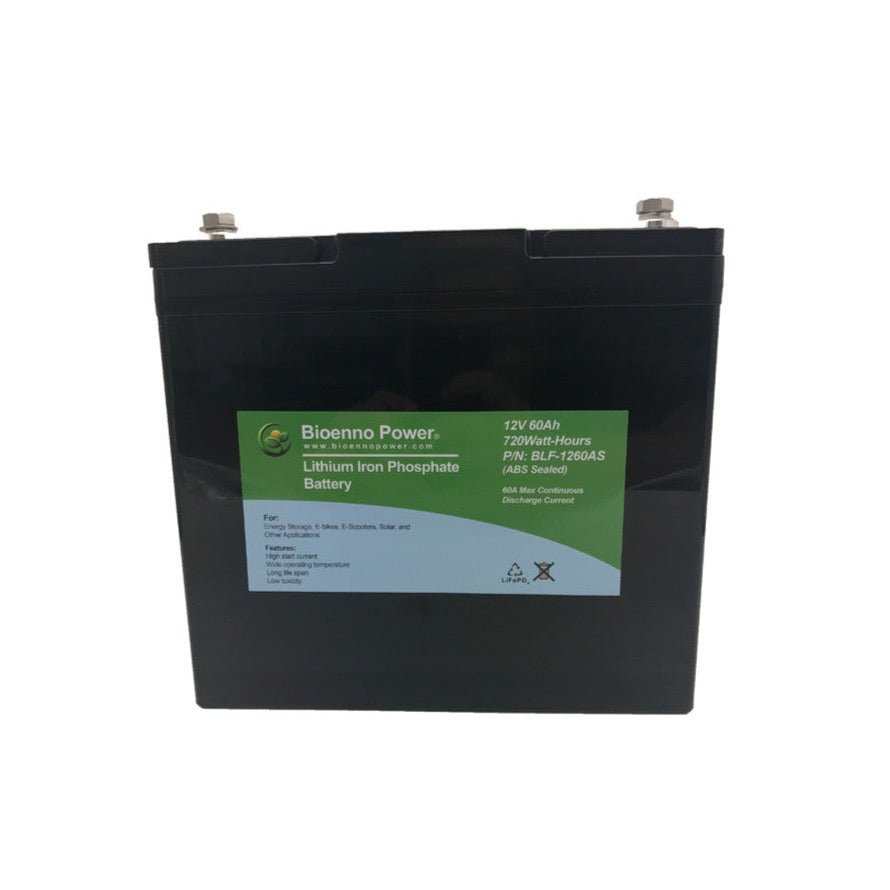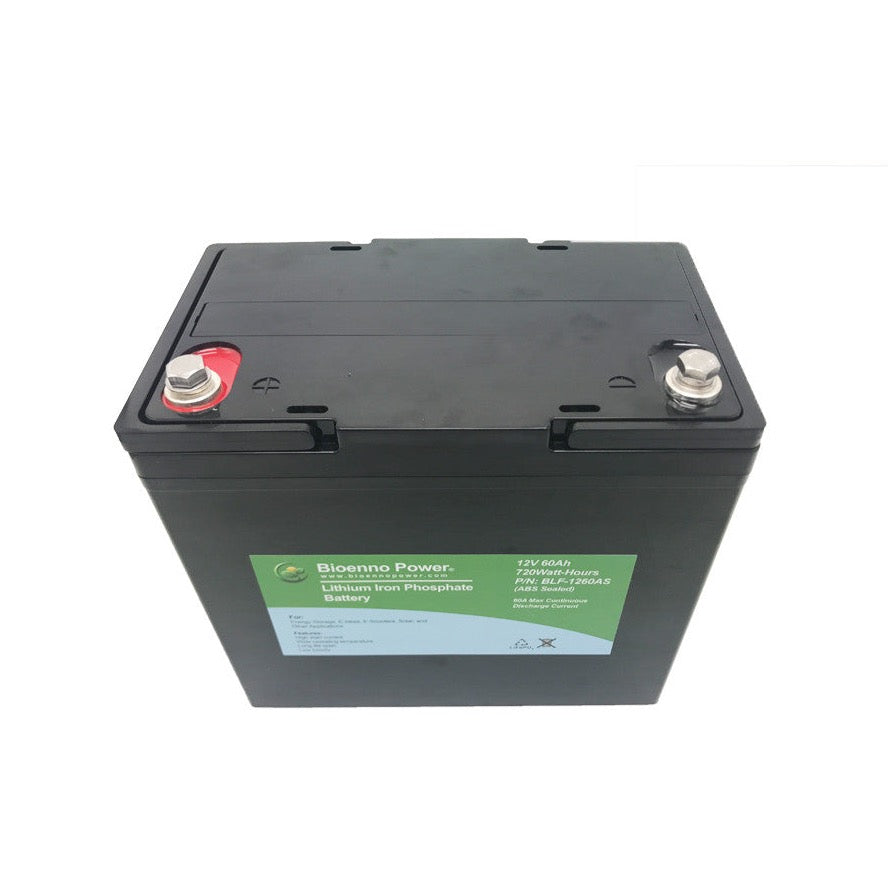The Future of Marine Batteries: What's on the Horizon?
The marine industry is undergoing a significant transformation, driven by technological advancements and a growing awareness of environmental sustainability. At the heart of this change lies the development of marine batteries, a crucial component for boats, yachts, and other marine vessels. This article delves into the future of marine batteries, exploring emerging trends and innovations that promise to revolutionize the way we power our marine adventures.
Understanding the Current Marine Battery Landscape
Before diving into the future, it's essential to understand where we stand today. Marine batteries have traditionally been lead-acid based, providing a reliable but somewhat limited solution in terms of efficiency and environmental impact. However, recent years have seen a shift towards more sustainable and high-performing alternatives.
-
Lithium-Ion Batteries Gaining Traction
Lithium-ion technology has been a game-changer in the marine battery space. Known for their lightweight nature and higher energy density, these batteries offer extended life and better performance compared to their lead-acid counterparts. This transition is not just a trend but a significant step towards more efficient marine power solutions.
-
The Rise of Solid-State Batteries

Solid-state batteries are emerging as a potential successor to lithium-ion batteries. With higher energy densities and improved safety features, these batteries could soon become the new standard for marine applications. Their ability to withstand harsh marine environments makes them particularly appealing for boaters and marine enthusiasts. Read about current marine deep cycle technology here.
Emerging Technologies and Innovations
As we look ahead, several cutting-edge technologies are set to redefine marine battery systems. These advancements promise to enhance performance, safety, and environmental friendliness.
-
Integration with Renewable Energy Sources
The integration of marine batteries with renewable energy sources like solar and wind power is an exciting development. This approach not only reduces reliance on traditional fuel sources but also enhances the sustainability of marine operations.
-
Smart Battery Management Systems
The advent of smart battery management systems is another leap forward. These systems optimize battery performance, extend lifespan, and ensure safety, providing users with real-time data and insights into their battery's health and efficiency.
-
Advancements in Charging Technologies
Rapid advancements in charging technologies are also noteworthy. Faster, more efficient charging solutions are on the horizon, reducing downtime and making marine travel more convenient and time-efficient.
The Impact of Environmental Regulations
Environmental concerns and regulations are playing a pivotal role in shaping the future of marine batteries. As the world moves towards greener solutions, the marine industry is under pressure to adopt more eco-friendly power sources.
-
Reducing Carbon Footprint
The shift towards batteries that have a lower environmental impact is not just a technological challenge but also a response to growing environmental consciousness. By reducing emissions and enhancing efficiency, these new-age batteries contribute to a smaller carbon footprint for marine activities.
-
Compliance with Global Standards
Manufacturers and users alike are increasingly focused on complying with international environmental standards. This compliance is not only about adhering to regulations but also about contributing to a sustainable future for marine activities.
The Role of Consumer Demand in Shaping the Market
Consumer preferences and demands are significant drivers of innovation in the marine battery market. As users become more aware of environmental issues and technological advancements, their expectations are shaping the products that manufacturers develop.
-
Demand for Longer Battery Life and Higher Performance

Users are increasingly seeking batteries that offer longer life and higher performance. This demand is pushing manufacturers to innovate and find solutions that meet these expectations without compromising on other aspects like safety and cost.
-
Preference for Eco-friendly Solutions
There's a growing preference for eco-friendly solutions among marine enthusiasts. This trend is encouraging manufacturers to explore new materials and technologies that are less harmful to the environment.
The Role of Cost in Future Developments
While technology and environmental considerations are crucial, cost remains a key factor in the adoption of new marine battery technologies. Affordability will play a significant role in determining how quickly these new technologies gain widespread acceptance in the market.
-
Balancing Performance with Affordability
The challenge for manufacturers is to balance performance and sustainability with affordability. As new technologies typically come with higher initial costs, finding ways to make these batteries more accessible to a broader range of consumers is essential.
-
Economies of Scale and Technological Advancements
As production scales up and technological advancements continue, the cost of newer, more efficient batteries is expected to decrease. This trend will likely make these advanced batteries more accessible to the average boater or marine enthusiast.
Looking Ahead: What the Next Decade Holds
The next decade promises to be an exciting one for the marine battery industry. With rapid advancements in technology and a growing emphasis on sustainability, we can expect to see significant changes in how marine vessels are powered.
-
Continued Evolution of Battery Technologies
We can anticipate continued evolution in battery technologies, with newer, more efficient, and more environmentally friendly options becoming available. This evolution will likely include further developments in lithium-ion technology and the emergence of solid-state and other alternative battery types.
-
Increased Adoption of Green Energy Solutions
There's likely to be an increased adoption of green energy solutions in the marine industry. This trend will be driven not only by environmental concerns but also by the practical benefits of these technologies, such as lower operating costs and reduced maintenance.
The Role of Government and Industry in Promoting Sustainable Solutions
Governments and industry bodies will play a crucial role in promoting sustainable solutions in the marine battery market. Through incentives, regulations, and research funding, these entities can significantly influence the pace and direction of innovation in this space.
-
Incentives and Subsidies for Green Technologies
Incentives and subsidies for adopting green technologies can make a big difference in speeding up the transition to more sustainable marine batteries. These financial incentives can help offset the higher initial costs of advanced battery systems.
-
Setting and Enforcing Environmental Standards
Setting and enforcing strict environmental standards is another way in which governments and industry bodies can promote sustainable practices in the marine battery market. These standards can drive innovation and ensure that the environmental impact of marine activities is minimized.
Conclusion
In summary, the future of marine batteries looks incredibly promising, with advancements poised to revolutionize the boating experience. Innovations in lithium-ion technology, the integration of renewable energy sources, and the development of smart battery management systems herald a new era of efficiency, sustainability, and reliability in marine power sources. For enthusiasts in boating, yachting, and marine exploration, these advancements promise not just enhanced performance but also a significant contribution to environmental conservation. As we sail into this exciting future, it becomes clear that the advancements in marine batteries will play a pivotal role in shaping the next generation of maritime adventures, making our journeys safer, longer, and more enjoyable. The horizon is bright, and with these cutting-edge technologies, the possibilities are as vast as the oceans themselves. Continue reading with our Ultimate Marine Battery Guide: Power, Performance, and Practicality








